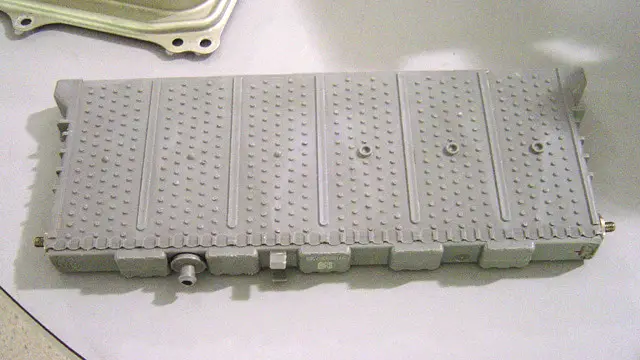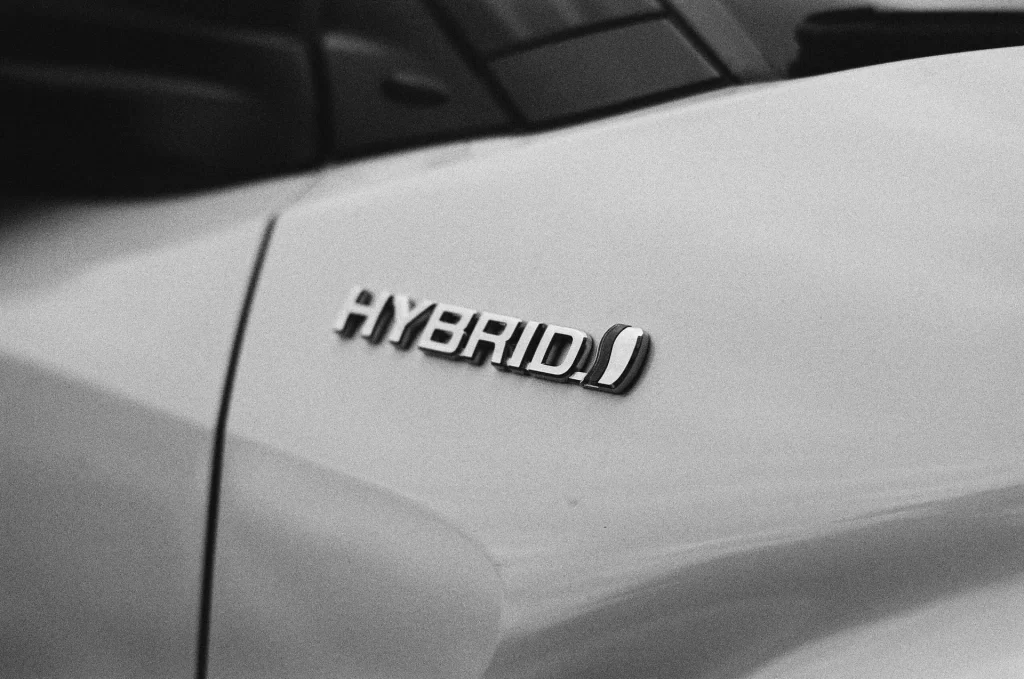Hybrid cars have become popular in recent years. This is due to the fuel efficiency and eco-friendliness associated with them. Reliability and efficiency are today what most car buyers are looking for. Coupled with the need for conserving the environment, there is an increased interest in hybrid and electric cars. But, are hybrid cars really reliable?
Surprisingly, the first hybrid car was launched in 1901 by Ferdinand Porsche, the founder of Porsche. He named it Lohner-Porsche Semper Vivus.

A recreation of the Lohner-Porsche Semper Vivus, Geneva Motor Show 2011.
Hybrid cars have had a decades-long history. Advancements in the internal combustion engine and the discovery of more oil fields sent hybrid cars into oblivion. The release of the Toyota Prius in 1997 sparked a flame that had long died.
In this article, we will determine whether hybrid cars are reliable or not.
Overview of hybrid cars
Essentially, hybrid cars have an internal combustion engine as well as an electric motor/s, which works interdependently. The electric motors are powered by a high-voltage battery that gets its power from the engine’s generator and regenerative braking.
Regenerative braking takes advantage of the kinetic energy produced during braking. When the driver presses on the brakes, the resulting friction, which is basically kinetic energy, moves to the generator which then transfers it into electrical energy. The high-voltage battery stores the resulting electrical energy for later use.
The high-voltage battery is located in the boot or behind the rear seat (with multiple hybrid versions from different manufacturers, the location of the battery might be different). A regular 12-volt battery is located in the hood for normal powering of electronics like radio and electric parts such as headlights.
How do Hybrid Cars Work?
First, it is important to note that there is a difference between a hybrid car, a plug-in hybrid (PHEV), and an electric vehicle (EV).
- Hybrid Car
A hybrid car as we have already identified has an internal combustion engine as well as a battery for powering an electric motor/s. The combustion engine and electric motors are used independently or together. This depends on the driving circumstances and the power in the battery.
When the battery is low, the internal combustion engine powers the car. When idling or in traffic, the internal combustion engine switches off, and the electric motor takes over.
- Plug-in Hybrid Electric Vehicle (PHEV)
A PHEV is a hybrid car that you can recharge by plugging into an external power source (normal 240-volt electrical socket). PHEVs are both petrol/diesel and electric vehicles.
What am I even trying to say? They have a conventional internal combustion engine, an electric motor, and a hybrid battery pack that you can recharge.

Source: Wikimedia Commons
- Electric Vehicle (EV)
An electric vehicle has a high-voltage battery and electric motor/s in place of a normal fuel engine. That is the long and short of it. Since they do not use fuel, they are charged by connecting to a power source. This could be a charging station or a normal 240V home socket.
Electric motors power EVs, not the standard internal combustion engine. They use electricity just like you charge your mobile phone.
Importance of Reliability in Car Ownership
Who wishes to buy an unreliable car? Anyone? Especially during the current financial situation. Times are tough and unpredictable. From gas prices to unprecedented inflation. As a result, dependability in car ownership is a no-brainer.
Any car owner or aspiring one needs a car that will perform dependably and consistently without breaking down. This ensures convenience, cost-effectiveness, and safety, hence the reason for this article.
How Reliable are Hybrid Cars?
Reliability is simply what you are asking for, cheaper to own, less stressful, and assured lifetime value. In there also add resale value. As African as it can get. Below are the pros of hybrids:
Advantages
- Owner satisfaction
Hybrid cars offer higher owner satisfaction according to worldwide statistics. Owners of hybrid cars report the highest levels of satisfaction.
A recent survey by iSeeCars.com analyzed close to a million cars produced between 2012 and 2013 and concluded that hybrid cars had the most satisfied owners. Of the top ten vehicles in the survey, five were hybrid cars. Not surprising that four of the top ten cars were Toyota hybrid models.
- Fuel Economy
There is no doubt that hybrid cars are reliable. Since they at times run on battery power, this saves you refueling expenses in the course of your travels. You will not need to worry too much about the constant spikes in fuel prices like your fellow ICE drivers will.
Over time, these savings will amount to significant financial savings.
- Carbon Emission Reduction
Less consumption of gas translates to reduced carbon emissions. Going green is a cliché every Tom, Dick, and Harry is all up about. Since hybrids are fulfilling this, what other affordable car alternatives would you be looking for if environmental protection is among your concerns?
You already have a true touch of what they are made of. I do not see the need to overburden you. The pros are clear, I believe.
Disadvantages
Everything has its cons. Hybrids are hugely unpopular the world over, with the main reason being plain ignorance, or is it misinformation? But signs show a gradual uptake of hybrids, and it is evidence enough that you are here.
Hybrid cars perform as well as conventional fuel cars, if not better, yet not many know about them. Hybrid technology has been around for decades, actually a century. Porsche was already tinkering with battery-powered vehicles toward the end of the 19th century.
Manufacturers accept that the future is inevitably changing and that this is a technology that they can not ignore anymore. Is the hybrid technology reliable?
In this section, we will not add myths and hearsay, we will focus on the validity of the concerns.
Over with the ranting. Here are the cons:
Battery Replacement

The 12-volt normal battery (running on sulfuric acid) runs vehicle accessories such as AC, stereo, computer, and headlights. It has a lifespan of a conservative four to six years.
The hybrid battery which is the subject of our discussion here runs the mechanical bit of a car. This is a lot of work and as a result, hybrid battery packs use high-quality electrode materials and hardy packaging to withstand factors such as temperature and humidity.
Replacement of hybrid car batteries is rare. There are countless reports and articles about this and that mileage, but none is certain proof.
In fact, manufacturers of hybrid cars offer longer warranties. In the US, Toyota offers an 8-year/160000 km warranty. That is close to a decade.
This shows how much faith manufacturers have in the durability and reliability of hybrid batteries.
The reason why battery replacement is a disadvantage in regions such as Africa is that the majority of the hybrid cars imported into the countries are not new. They might have used a significant part of the warranty cover.
However, if there is a need for replacement, the hybrid battery packs are reconditioned or replaced. In addition, technology has made it easier for you to order the battery pack online. A quick Google search will tell you that the battery is not all that pricey.
Voltage
Hybrid cars have high voltage which powers the electric motor/s as well as charging the battery. This high voltage can be lethal and can result in electrocution, short-circuiting, or electrical fires.
Electric shock can cause serious injury or worse, loss of life. It also makes it difficult for rescuers to save people trapped in the car. Short circuits can, on the other hand, damage major components and accessories in the car.
As much as manufacturers fortify the high-voltage systems, accidents may happen, if you do not follow proper safety measures.
And of course, only allow highly skilled technicians to service your car.
Recycling
Recycling is a very valid issue since hybrid cars are a major contributor to environmental conservation.
While the recycling of batteries aims at harvesting reusable parts, structures to collect them are not yet well established, just like there is a pandemic of mobile phone batteries all over. Additionally, the extraction of lithium for recycling is expensive.
Power
The primary misunderstanding is that many think since a hybrid has two engines that it means it is more powerful than a conventional fuel-powered car that has one engine. Kindly understand that a hybrid car has a fuel engine and electric motor/s, not two engines.
However, the most common hybrids are not for quenching your heavy footedness. They are for optimal efficiency and lower fuel economy. So yes they are low on power, if your goal is to fly around along the highways and post how fast you can drive, it is not for you.
Bottom-line
Hybrid cars are generally more reliable than fuel-powered and other electric-powered automobiles. I believe we have debunked a number of myths associated with hybrid vehicles.
- Hybrid battery packs are reliable. Manufacturers have so much faith in them that they offer above-normal warranty periods.
- As compared to other electric vehicle types (EVs and PHEVs) hybrid car technology is much more advanced and simpler.
- The issue to do with power is subjective. The most common hybrid cars are for reliability, efficiency, and durability, so power is null and void here.
Are hybrid cars reliable? Yes!

